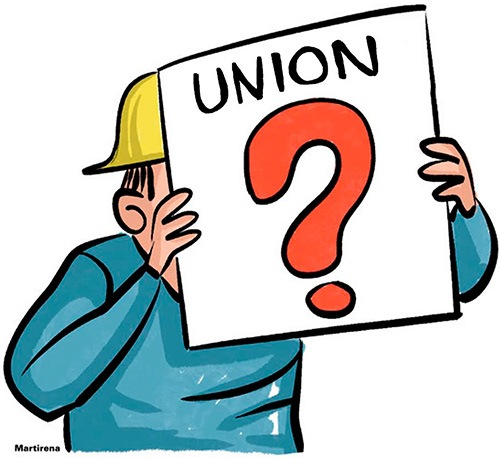![]() Cargando...
Cargando...
«Who is the union secretary?» Seeing the confused look on her face, I added, “I was told she works in this area.” She turned to her colleague and repeated, «Union?» They both had the same expression, and the second woman responded, «Yes, she’s the one who stands next to the person who collects the lunch money when our wages are paid so we can pay her.»
The reference helped her find who she was looking for, but the purpose of the conversation would now be different. Where they do not know who heads the union, it is clear that the organization lacks prominence and leadership.
A lack of knowledge about payment systems, plans, and alternatives to keep them operational emerged in the responses. This is not enough to prevent closures due to a lack of raw materials. Workers have the right to know the details and be consulted and informed so that the belief that the union «has no influence» does not take root.
Although several parties are undoubtedly responsible for this lack of awareness, the union—the organization whose job it is to represent workers—bears the greatest share of the blame.
Every union leader should promote empathy and personalize support for workers by being generous with words. For example, a woman raising her children alone needs different help than grandparents who have become guardians of their grandchildren, a lonely elderly person without family, a young couple, or someone dealing with a power outage at home.
Without compromising discipline, it is your responsibility to advocate with the administration for the adoption of schedules that maximize the potential and possibilities offered by teleworking. These schedules should be based on factors such as transportation and distance. You should also take advantage of every opportunity to inform and agree on ways to act for the common good.
To achieve this, they need visibility and organic functioning that makes them participants in efficiency. They won’t become part of those who help change the gray tones of our everyday lives into a range of colors that radiate hope by limiting themselves to collecting union dues.
Yolanda Molina Pérez
Licenciada en Periodismo (1995 Universidad de Oriente). Trabajó como periodista en Tele Cristal (Holguín) hasta marzo del 2003, directora y guionista de televisión.
Periodista del semanario Guerrillero (Pinar del Río) desde mayo del 2003 hasta la actualidad, corresponsal del semanario Trabajadores en esa provincia desde septiembre del 2020.
Creadora audiovisual y cinematográfica independiente.

